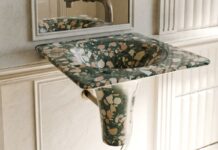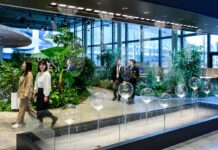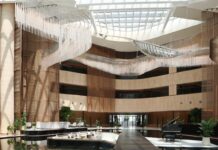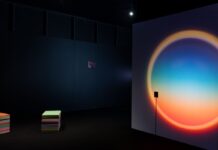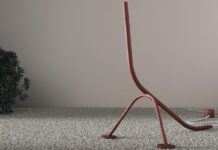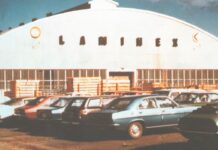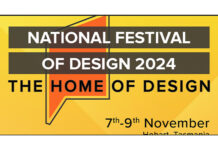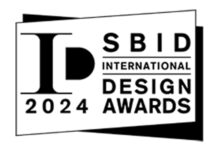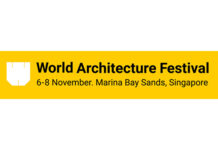Important developments, trends and future themes for furniture, materials and interior design will be presented on the knowledge platform of Interzum 2023.
With societal changes and the current global political situation, the expectations we have of future design are also changing. Interzum 2023 will showcase the exciting innovations presently in development and demonstrate the potential they offer the supplier sector.

The Interzum Trend Stage is one of my favourite places to visit at the show and, this year, the trade fair was lucky enough to secure the services of Katrin de Louw, owner of TRENDFILTER®, as an independent curator of the Trend Stage.
The programme she has compiled will shed light on the most important developments and future themes for furniture, materials and interior design. The programme offers a thematic range for the industry, extending from the waste and circular economy through bio-based materials, the digitalisation of processes and coming colour trends to sustainability, mattress recycling, targeted product simplification or 3D GCI.

“The main topics are, of course, sustainability, in particular the circular economy and innovative materials, as well as digitalisation”, the trend expert explains. Renowned experts in these fields have been invited to share their knowledge with visitors. In this context, the programme of the Trend Stage corresponds with the trend forums “Materials & Nature”, “Function & Components” and “Textile & Machinery”, which show how creatively the furniture supplier industry is reacting to sustainable requirements.
Neo-ecology will feature as a leading theme of Interzum 2023 on the Trend Stage. Here, both well-known experts and young designers and start-ups aspiring to create a transparent, regional and sustainable circular economy are given a platform.

Since the majority of a product’s ecological impact is determined by its design, there is enormous potential here for the transformation towards circularity. A number of presentations on the Trend Stage specifically address how circular-economy products are designed and manufactured. However, circular design presents an opportunity not only for more sustainable product design, but also for new business models.
In our fast-paced times, however, design must also adapt to current requirements changing more rapidly all the time. The Trend Stage will explore how societal trends are influencing our habits, or how various lifestyles are having an impact on interior design. Psychological factors also play a part here, as do the latest furnishing trends.

Digital transformation provides another area of focus in the programme of the Interzum Trend Stage. Refined technologies open up new possibilities in design and in the production of furniture components. Through the use of 3D technology, high-quality surfaces, for example, can be produced without the use of chemical materials. Digital processes are also automating the production of images and ensuring that they can be made available for individual customer requirements and product variants. Thus, with augmented reality, for example, furniture can be positioned three-dimensionally in space without having to actually be on site.
You can find the current programme of the Trend Stage here.






